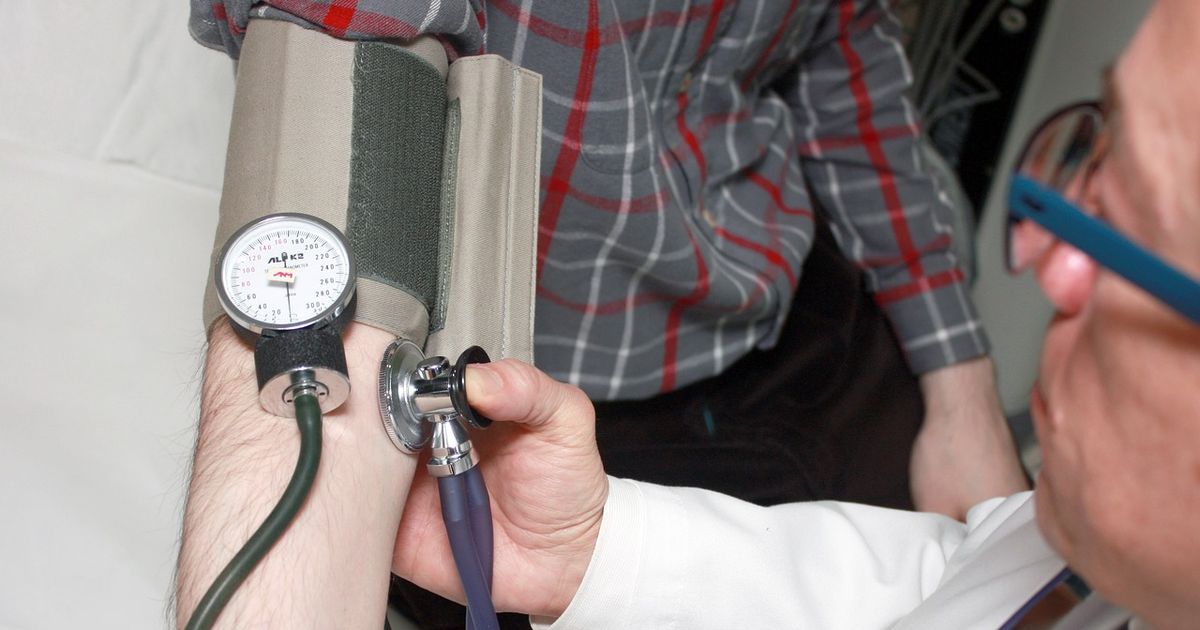By 2023, according to the Centers for Disease Control and Prevention (CDC), heart-related diseases will be the leading cause of death in the United States, with 204.3 deaths per 100,000 inhabitants. This represented more than 22% of the deaths recorded in the country last year.
However, preventing cardiovascular events and reducing the risk of death is possible if the conditions are identified in time and the patient “modifies” his or her lifestyle, says the interventional cardiologist. Pedro Martínez Clarkfounder of the network of comprehensive cardiovascular practice centers Amavita Heart and Vascular Health (Amavita Health), based in Miami.
“Most cardiovascular events are preventable if they are identified early and if lifestyle is modified. “Everything we can do to take care of cardiovascular health is going to have an important impact on the reduction in cardiovascular events that a person can have,” he says in conversation with DIARIO LAS AMERICAS.
Types of cardiovascular diseases
Although for the public cardiovascular diseases are reduced to a coronary disease, the main disease that cardiologists treat, the specialist explains that CVD covers a number of conditions or heart related problems.
The coronary heart diseasewhich is the accumulation of cholesterol plaques in the arteries leading to the heart, obstructing blood flow, which could cause a heart attack or myocardial infarction. “It is the cardinal disease or the most important disease that cardiologists treat, and with which people are more alert because, the truth is, what people are interested in is not having heart attacks,” he points out.
However, he mentions that cardiovascular disease involves a number of different conditions that affect the proper functioning of the heart. A CVD can be arrhythmia in the heart which, he explains, “is a totally electrical issue” that affects the heart rate, or the heart valve problemswhich can occur in patients who were born with a hole in the heart.
Other conditions related to this vital organ are: heart failurethe peripheral arterial disease and the congenital heart disease. There are also problems with blood pressureknown as hypertension, and cardiovascular accidents (CVA)caused by a lack of blood flow to the brain.
Age to go to the cardiologist
Although there are patients who, due to “very specific syndromes” need to go to the cardiologist at an early age, Martínez Clark indicates that in general the recommendation is that people have a cardiovascular evaluation at age 50. This, given that cardiac events “begin to increase in frequency at around that age.”
However, it mentions that if the person has a direct relative (brother, father or mother) who has had a cardiovascular problem around the age of 50, they should go to the cardiologist. five years before your family member suffered that event.
“It is considered a hereditary factor if you have a brother, sister, father or mother who had a cardiovascular event around the age of 50. If you have this family history, it is important that you see a cardiologist about five years before that event occurred (…) That is, If your mom or dad had a heart attack at 48, it’s worth seeing a cardiologist at 43”he explains.
The doctor indicates that coronary heart disease is increasing because the general population is aging, and there are many more older patients living a life “functional” than before.
However, he highlights, treatment for CVD has improved “a lot” due to the advancement of science and technology, making interventions now “much more effective and more accessible” than those available 10 years ago.
The lifestyle
The main thing, Martínez Clark mentions, is to identify the risk factors associated with coronary heart disease. These are: diabetes, high cholesterol, smoking, high blood pressure and hereditary factors.
In this sense, he points out, the lifestyle practices that would positively affect these factors are related to nutrition and physical activities.
Regarding nutrition, the specialist indicates that a diet rich in vegetables, proteins and low in saturated fats They have a cardiovascular benefit.
It also recommends doing at least 30 minutes of cardiovascular physical activity five days a week, avoiding cigarettes, keep blood pressure controlled or treatedand strict sugar control to prevent diabetes. “They are lifestyles that positively affect risk factors historically associated with coronary heart disease,” he points out.
The doctor assures that maintaining healthy habits can improve cardiovascular problems. In this sense, he mentions that in two patients of the same age, race and similar characteristics, in which one has exercised all his life, has a “good cardiovascular reserve” and eats healthily, and the other has a lifestyle of a less healthy lifestyle, “the impact” of a heart attack on the patient with a healthy lifestyle is “much smaller.”
“Sometimes patients get frustrated because they eat healthy, they exercise, they don’t smoke, they don’t drink, but they have a heart attack and they think that all that effort was wasted, but that is not lost. If it weren’t for that healthy lifestyle, that heart attack would have had a much worse impact on his heart.”, he emphasizes.
[email protected]
@ebritop22
